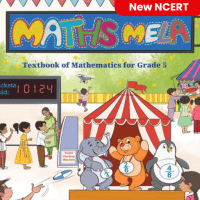Class 5 Exam > Class 5 Questions > Blessed is he ______ has found his work.a)Who...
Start Learning for Free
Blessed is he ______ has found his work.
- a)Whom
- b)Who
- c)Whose
- d)That
Correct answer is option 'B'. Can you explain this answer?
Verified Answer
Blessed is he ______ has found his work.a)Whomb)Whoc)Whose d)ThatCorre...
Blessed is he who has found his work.
Correct pronoun: who
Incorrect pronoun: whom, whose, that
Most Upvoted Answer
Blessed is he ______ has found his work.a)Whomb)Whoc)Whose d)ThatCorre...
Blessed is he who has found his work.
Correct pronoun: who
Incorrect pronoun: whom, whose, that
Free Test
FREE
| Start Free Test |
Community Answer
Blessed is he ______ has found his work.a)Whomb)Whoc)Whose d)ThatCorre...
Blessed is he who has found his work.
This statement is a sentence fragment and lacks a main verb. However, we can assume that the main verb is implied and understand the meaning of the sentence. The correct option to complete the sentence is "B" - who.
Explanation:
- The sentence is expressing a blessing or praise for someone who has found their work.
- The pronoun "he" refers to a specific person, and the word "who" is used to introduce a relative clause that provides additional information about that person.
- In this case, the relative clause is describing the person who has found their work, indicating that they are the one who is blessed.
- The use of the word "who" is appropriate here because it refers to a person, rather than a thing (which would require the use of "that" or "which").
- The sentence could be rephrased as "He is blessed, the one who has found his work."
- By using "who" instead of "that" or "which," the sentence emphasizes the personal aspect of the individual who has found their work and suggests that this is a significant achievement for them.
- The sentence fragment structure may be seen in literary or poetic contexts where brevity and a certain rhythm or impact is desired.
This statement is a sentence fragment and lacks a main verb. However, we can assume that the main verb is implied and understand the meaning of the sentence. The correct option to complete the sentence is "B" - who.
Explanation:
- The sentence is expressing a blessing or praise for someone who has found their work.
- The pronoun "he" refers to a specific person, and the word "who" is used to introduce a relative clause that provides additional information about that person.
- In this case, the relative clause is describing the person who has found their work, indicating that they are the one who is blessed.
- The use of the word "who" is appropriate here because it refers to a person, rather than a thing (which would require the use of "that" or "which").
- The sentence could be rephrased as "He is blessed, the one who has found his work."
- By using "who" instead of "that" or "which," the sentence emphasizes the personal aspect of the individual who has found their work and suggests that this is a significant achievement for them.
- The sentence fragment structure may be seen in literary or poetic contexts where brevity and a certain rhythm or impact is desired.

|
Explore Courses for Class 5 exam
|

|
Question Description
Blessed is he ______ has found his work.a)Whomb)Whoc)Whose d)ThatCorrect answer is option 'B'. Can you explain this answer? for Class 5 2025 is part of Class 5 preparation. The Question and answers have been prepared according to the Class 5 exam syllabus. Information about Blessed is he ______ has found his work.a)Whomb)Whoc)Whose d)ThatCorrect answer is option 'B'. Can you explain this answer? covers all topics & solutions for Class 5 2025 Exam. Find important definitions, questions, meanings, examples, exercises and tests below for Blessed is he ______ has found his work.a)Whomb)Whoc)Whose d)ThatCorrect answer is option 'B'. Can you explain this answer?.
Blessed is he ______ has found his work.a)Whomb)Whoc)Whose d)ThatCorrect answer is option 'B'. Can you explain this answer? for Class 5 2025 is part of Class 5 preparation. The Question and answers have been prepared according to the Class 5 exam syllabus. Information about Blessed is he ______ has found his work.a)Whomb)Whoc)Whose d)ThatCorrect answer is option 'B'. Can you explain this answer? covers all topics & solutions for Class 5 2025 Exam. Find important definitions, questions, meanings, examples, exercises and tests below for Blessed is he ______ has found his work.a)Whomb)Whoc)Whose d)ThatCorrect answer is option 'B'. Can you explain this answer?.
Solutions for Blessed is he ______ has found his work.a)Whomb)Whoc)Whose d)ThatCorrect answer is option 'B'. Can you explain this answer? in English & in Hindi are available as part of our courses for Class 5.
Download more important topics, notes, lectures and mock test series for Class 5 Exam by signing up for free.
Here you can find the meaning of Blessed is he ______ has found his work.a)Whomb)Whoc)Whose d)ThatCorrect answer is option 'B'. Can you explain this answer? defined & explained in the simplest way possible. Besides giving the explanation of
Blessed is he ______ has found his work.a)Whomb)Whoc)Whose d)ThatCorrect answer is option 'B'. Can you explain this answer?, a detailed solution for Blessed is he ______ has found his work.a)Whomb)Whoc)Whose d)ThatCorrect answer is option 'B'. Can you explain this answer? has been provided alongside types of Blessed is he ______ has found his work.a)Whomb)Whoc)Whose d)ThatCorrect answer is option 'B'. Can you explain this answer? theory, EduRev gives you an
ample number of questions to practice Blessed is he ______ has found his work.a)Whomb)Whoc)Whose d)ThatCorrect answer is option 'B'. Can you explain this answer? tests, examples and also practice Class 5 tests.

|
Explore Courses for Class 5 exam
|

|
Signup for Free!
Signup to see your scores go up within 7 days! Learn & Practice with 1000+ FREE Notes, Videos & Tests.























